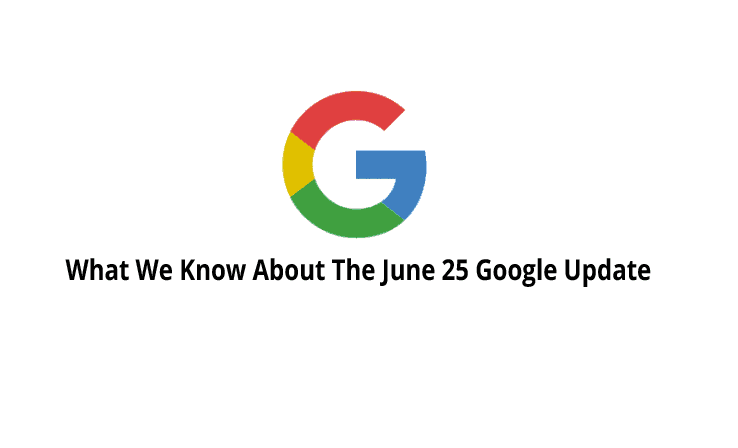 Google updated their search results algorithm in late June, and over the holiday weekend. A significant Google algorithm update happened on June 25. This update has had webmasters and SEOs buzzing in all past week about the significance of its effects on websites across the world.
Google updated their search results algorithm in late June, and over the holiday weekend. A significant Google algorithm update happened on June 25. This update has had webmasters and SEOs buzzing in all past week about the significance of its effects on websites across the world.Not all the tracking tools are showing massive changes. Mozcast has been overheating for the past couple months now, SERPMetrics seems to have declined a bit, Algoroo is somewhat calm now, Accuranker shows activity, RankRanger is showing major swings and SEMRush is also showing major changes.
Google's June 25 Algorithm Update - High Fluctuations, Low Chatter
Despite the length of the current update, the initial chatter, per Barry Schwartz of SERoundtable, was quite light. This is obviously peculiar, not only in light of the length of the update, but the fluctuation levels themselves as well. The risk levels on our Rank Risk Index have risen above moderate, and show a continuous series of high fluctuation levels.With rank fluctuations being what they are, a voluminous degree of chatter would be the norm, or at minimum the expectation. What then is behind the slow development of industry chatter in this instance? This question, oddly as it may be, plays a significant role in understanding (of course partially, as only Google knows the full picture) what transpired with this update.
It’s no secret that Google updates its algorithm often, and based on what we’ve seen since 2000, it will likely continue to do so for years to come. If you’re noticing the reduction of impressions in Google Search Console over the default view of 28 days, expand the range to 90 days.
June's Algorithm Update Ranking Positions Hit Analysis
RankRanger, another tracking tool, provided further analysis of the June 25 update in a blog post published today. The company says this appears to be a long running update, the likes of which has not been seen since October 2016.Analysis from RankRanger indicates Google’s recent algorithm update primarily targeted sites that were ranking in positions 6-10.
- Top 3 Results - Exact Match (%)
- Top 5 Results - Exact Match (%)
- Top 10 Results - Exact Match (%)
Google's June Update - What You Should Do Now
Being able to accurately identify the root causes plaguing your website can seem like a scary proposition for some. Using the scientific method can help you figure out whether you have a big SEO problem.For those who want to know, How to tackle this situation, follow this guide:
- Start With Hypothesis
- Make Ranking Observation
- Conduct an Website Analysis
- Update Your Content Regularly
- Publish Relevant Content